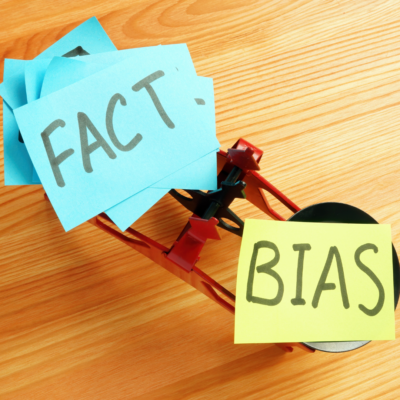Mitigating Bias In Background Screening: Strategies for Fair and Non-Discriminatory Practices
Background screening is a critical step in the hiring process, ensuring that candidates are suitable for their roles.
This process can be fraught with potential pitfalls, particularly concerning bias and discrimination. Ensuring fairness in background checks is a matter of ethical hiring practices and a legal necessity, guided by the Equal Employment Opportunity Commission (EEOC) guidelines.
Following are some strategies to ensure that background screenings are conducted fairly, focusing on minimizing unconscious bias and adhering to best practices.
Bias In Background Screening
Bias in background screening can manifest in various ways, often subtly influencing the decision-making process.
Unconscious biases, preconceived notions about individuals based on race, gender, criminal history, and other characteristics, can inadvertently lead to discriminatory hiring practices.
Such biases deprive organizations of diverse talents and perspectives essential for innovation and growth.
Adherence to EEOC Guidelines
The EEOC provides a framework to help employers conduct background checks while respecting candidates’ rights and promoting equal opportunity. The guidelines underscore the importance of using background information that does not discriminate based on race, color, national origin, sex, or religion.
To mitigate bias, employers must:
- Apply background checks consistently: Employers should apply the same criteria to all candidates within the same job category. This consistency helps prevent discriminatory practices that might favor or disadvantage certain groups.
- Consider the nature and gravity of offenses: Not all criminal records should disqualify candidates. Consider the nature of the offense, the time elapsed since the conviction, and the relevance of the crime to the job’s responsibilities. This approach ensures that decisions are made based on relevant and current information.
- Conduct individualized assessments: When potentially disqualifying information is found, employers should offer candidates an individualized assessment. This process allows candidates to provide context about their criminal records or other background information, ensuring that decisions are made fairly and not solely based on background check findings.
Best Practices for Minimizing Unconscious Bias
Employers can adopt several best practices further to minimize unconscious bias in the background screening process:
- Implementing blind screening techniques, such as removing names and other identifying information from applications during the initial review stage, can help minimize biases related to gender, race, or ethnicity.
- Developing a structured set of criteria for evaluating background checks can help ensure that decisions are based on objective, job-relevant information rather than subjective impressions.
- Training on diversity, inclusion, and unconscious bias for hiring professionals can raise awareness of potential biases and promote fairer decision-making.
- Leveraging technology and background screening software can help standardize the screening process and reduce the potential for human bias.
- Regularly reviewing and updating background screening criteria to ensure they are relevant and non-discriminatory is crucial. This process should consider the latest legal developments, EEOC guidance, and industry best practices.
- Being transparent with candidates about the background screening process and the criteria used for decision-making can build trust and ensure fairness. Candidates should also be informed of their rights to review and dispute any inaccuracies in their background reports.
- Employers should work with reputable background screening providers that understand and comply with EEOC guidelines and local laws. A reliable provider will offer guidance on best practices for fair and unbiased screenings.
Essential for Fostering Fairness
Mitigating bias in background screening is essential for fostering diversity, inclusion, and fairness in the workplace. By adhering to EEOC guidelines and implementing best practices to minimize unconscious bias, employers can ensure that their background check processes are equitable and legally compliant.
Ultimately, a fair and unbiased background screening process benefits employers and candidates, leading to more diverse and vibrant workplaces where everyone can succeed based on merit.







